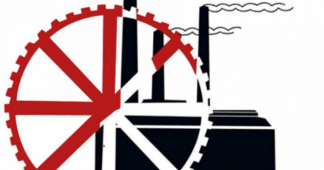By Kostas Charitakis
Sun, 24/01/16
This controversy illustrates the difference between the defeated world of ideology and the vibrant and outward-looking world of action that strives to disengage from the dominant relations.
The venture of the self-managed VIOME in Greece has come face to face not only with the enemies of self-management “by nature and by stance”, i.e. the ruling class and the state, but also with the communist and anti-capitalist forces of the left, including the anarchist movement. Despite their differences, these forces seem to agree to the fact that within capitalism, self-management can be nothing more than a kind of workers’ “self-exploitation”, a form of a “collective capitalism”. From this perspective, not only has self-management nothing to offer in the direction of social emancipation, but –even worse– it “absolves” capitalism of its obligation to create jobs and guarantee the welfare of all workers. According to a different version of this argument, although the “good intentions” of such ventures are acknowledged, they are doomed to merely manage their misery and ultimately reproduce capitalism, as long as there is no “central” change through the conquest of state power.
In this discussion, which has many times acquired the characteristics of an open hostile polemic directed towards any effort of self-management, valuable theoretic slogans have been fished out of dusty libraries, mainly Marxist-Leninist ones, which attempt to “scientifically” prove the absence of a revolutionary character and/or the openly counter-revolutionary character of these ventures. This attack has two pivotal aspects: a) self-management diverts workers from the key task of an “organised workers’ movement”, which is to raise demands towards the state and the governments; and b) self-management negates or at least undermines the necessity of the role of a “working class party” that could per se “liberate” society through its struggle for the organisation of the working class and the conquest of power.
This short description evidently shows that this has nothing to do with mere political or theoretical differences, but with a whole cultural gap in the world vision that separates these views from the essence and spirit of self-management ventures. In fact, this controversy is very interesting as it lucidly and concisely expresses the difference between, on the one hand, the defeated world of ideology and all kinds of “-isms”, of closed self-referential systems, gasping to catch up with the new reality, and, on the other hand, the living and outward-looking world of action that strives here and now to disengage from the dominant relations and to self-institute . In other words, this is a contradiction between an old-type party-centric and state-oriented politics that stems from above and a new type of politics emerging from the grassroots through the concerns, processes and struggles around the question of “how do we want to live” and not just “under whom do we want to live”.
Certainly, theoretic debates have a history and acquainting ourselves with it is important, today however old questions are raised on different terms and old answers, proven to be inadequate in the past, cannot affirm their adequacy today… Either seen through the lens of the so-called “objective conditions” or through the lens of “subjective conditions” (a distinction that in the name of materialism has ended up being a metaphysic one), all the concepts of traditional ideologies have been liquefied, affected by the double extinction of the “subject” (working class as we knew it) and the “object” (capitalism as we knew it). Of course, both continue to exist, but now words do not exactly correspond to their original signifieds. Not only the dominant classes redraw the map of concepts and symbols of their domination, but also the antagonistic anti-capitalist movement too redefines the concepts and means of emancipation through its own multifaceted practice.
Therefore, self-management as a living current of today’s (“grassroots”) world does not need to claim its revolutionary credentials based on the blood-stained pages of the Collected Works of any great teacher, or the heroism of unfulfilled efforts of the past. It is enough, it should be enough, that self-management manages to involve today, right here, right now, a whole set of subjects integrated in a potential plan for the reorganisation of life based on terms of autonomy, equality and freedom. What page in the writings of a thinker, which narrative of a certain age can claim to be more potent than the vibrant synchronic act of trying to disengage from hetero-determination and heteronomy, from domination, inequality and exploitation, by those who for all revolutionaries allegedly represent the “chosen ones” of social liberation? This “praxis” is not disconnected from theory; it stems from both theoretical roots and historic experiences, yet it does not create some kind of “ideological identity”. This is perhaps what strikes ideological “instructors” as awkward, since they are used to first thinking in terms of “identity”, revolving around the question of “where you belong”, instead of “what you do”.
Instead, what we are doing is “more an example of transition, rather than a model of society, where we would gradually build up our practices and make decisions that distance us from our starting point within the system to move towards a world we want to live in” (Enric Duran – interview about CIC, the integrated cooperative in Cataluña, available online at www.x-pressed.org). Traditional ideologies would mainly focus on describing the principles and structures of the new society (in terms of articles of faith to the ideal society that will someday be attained), transition was left to the “auto pilot” of a state-controlled, guided revolutionary process. The “new human” (the cleaning lady in Lenin’s “The State and Revolution”, who could take charge of governance) would emerge after many ordeals and much toilsome education by the party and the state. Until then, the entire structure of the capitalist allocation of work and directorship would be necessary and unquestionable. Factory councils and self-management were considered “disorganisation”, whereas state planning and single-person direction was “organisation”. Well, this “new human” never managed to emerge eventually as we all know today, because although they tried to take factories and lives in their hands, people have eventually succumbed to the educational function of the party and the state.
As shown by dramatic historic experience but mainly by today’s totalitarian capitalist conditions, the question raised in theory and practice to social emancipation movements is “how can one establish, in the intervals of servitude, the new time of liberation: not the insurrection of slaves, but the advent of a new sociability between individuals who already have, each on his own, thrown off the servile passions that are indefinitely reproduced by the rhythm of work hours?” (Jacques Ranciere – “The nights of labour: The workers’ dream in nineteenth century», cited in “Sisyphus and the Labour of Imagination”, Stevphen Shukaitis, http://www.rebelnet.gr). This would require the creation of “material foundations” to disengage our lives from the capital and the state. If we wish to move from the level of propaganda and academic/political lessons to the level of life, we must find or create a territory where we can take roots and evolve on our own independent means. We must be able to create solutions ourselves for ourselves, instead of just seeking solutions from the capital and the state, thereby perpetuating our dependency on the chains of exploitation and domination. Self-management can provide us the means for our survival on terms of dignity and freedom, establishing at the same time those solidarity and horizontal direct-democracy networks that will become the actual territory for social emancipation actions and the creation of our own commons.
Again, as Ranciere says, “the absence of the master from the time and space of productive work turns this exploited work into something more: not just a bargain promising the master a better return in exchange for the freedom of the workers’ movement but the formation of a type of worker’s movement belonging to a different history than that of mastery”. This is exactly the point: create our own history; or, in other words, our own self-education about …not being workers; not just being the other pole of capital, ready to die from suffocation as soon as our ties (or rather our bonds) are broken. For traditional ideology and workers’ policy there are only masters and servants. Thus, workers opting for self-organisation cannot be classified any other way but as new masters. There is no space to allow workers move beyond this relationship, thus remove themselves from confirming the capital. This is the path that self-management attempts to open up, with immense difficulties and numerous contradictions. This is above all what its enemies cannot forgive…
Published at http://www.workerscontrol.net/authors/who-opposed-self-management-and-why
Also read











